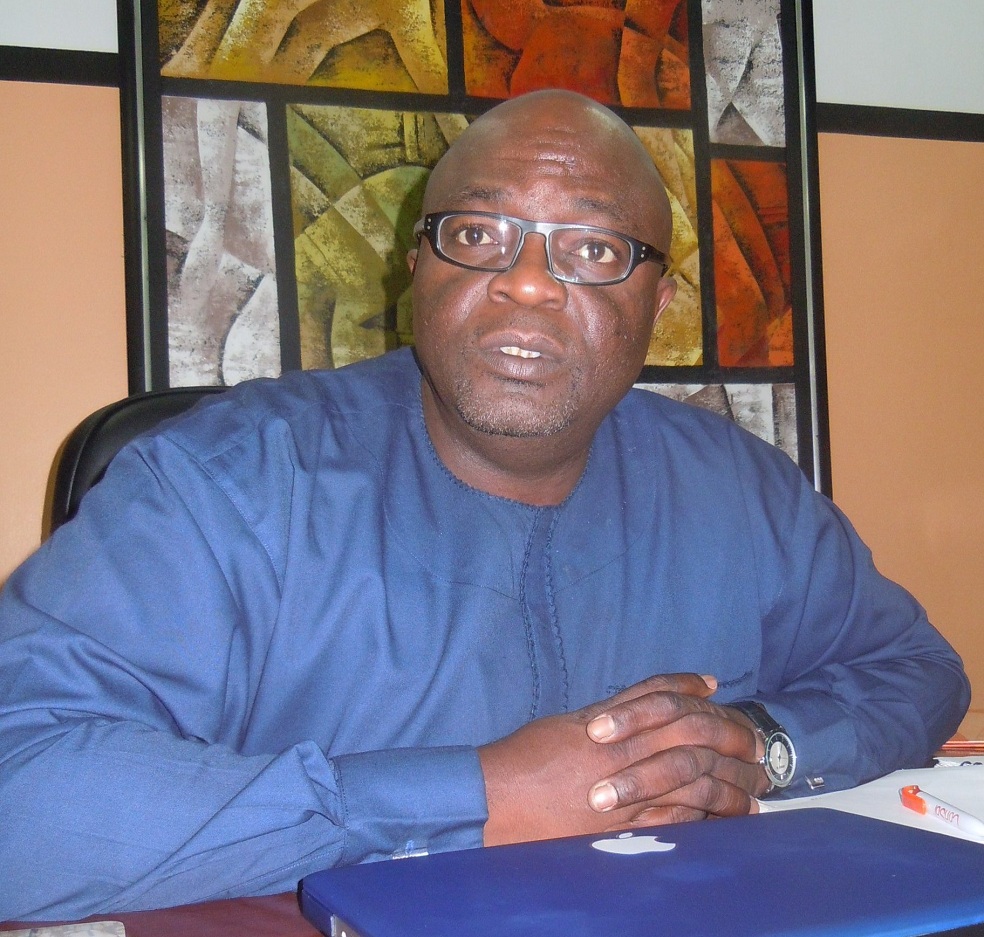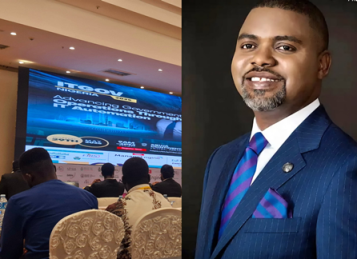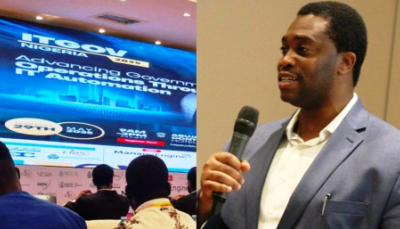Managing Director and Chief Executive Officer of ConSol, Mr. ABIODUN ADEOYE talks to IT Edge News, ANTHONY NWOSU, on why ConSol is diversifying to data center services from being just a contact center provider and its strategic relationship with notable OEMs.
ConSol has been known as a BPO/contact centre provider, but lately you diversified into data centre services, what informed your decision on that?
As a BPO/ContactCentre service provider, the data centre is at the heart of our business. The engine that drives our contact centre is installed in our data centre. As a coincidental part of our business, we must have a data centre by virtue of that. Since we have a data centre infrastructure in place, there is no reason why we cannot utilize excess capacity in our data centre infrastructure to offer data centre services to other organizations that need data centre hosting services. That’s how we decided that we will go into data centre services. Our contact centre operates on a 24/7 basis and with infrastructure solutions such as 24/7 power/energy that support data centre services, we figured out that we should go into data centre services. What we are looking at doing now is to expand the existing infrastructure. We have two approaches to this: one is to partner with an OEM that can bring the technology solutions so that we won’t incur all of the capital expenditure and the other way is to incur all of the capital expenditure solely and get started. We will prefer the former. I think there is a great opportunity for data centre hosting in Nigeria as this cuts across many sectors from government, oil industry and particularly the financial sector. The nature of financial service sector business is that they need to have a backup data centre; here we can provide business continuity services for the financial sector or disaster recovery capability using our data centre as a backup centre.
Does Nigeria have the human capacity to handle this data centre explosion and what are you doing about data sovereignty?
The issue of human capacity isn’t an issue in Nigeria. We have a very vibrant youth sector, and a lot of Nigerian youths are thinking. For example, Nigerian youths are so absorbed in e-commerce. What drives the internet are data and data centres. Lots of servers and information are being hosted. Nigeria is being positioned as an information hub in Africa. Evidently you can see lots of e-commerce businesses springing up and growing fast in Nigeria like Jumia, Konga etc. There are a lot of activities in the Nigerian youth sector. Yes, we have the capacity and a vibrant youth sector that is thinking futuristically. Look at the guys that set up Jobberman for example they were undergraduates and started developing Jobberman while their university was closed due to strike, but now they have the biggest online recruitment platform in Nigeria. Despite our shortcoming as a country, the youth sector is thinking. I think a lot of credit should be given to the Federal Government of Nigeria via Communication Technology Ministry in trying to develop that ICT sector. Historical credit goes to the opening of the telecom sector in Nigeria; there is so much fibre connectivity now. I strongly disagree that we don’t have the capacity. The potential is there and the youth sector is leveraging on the internet. I think that what the Government should do is to focus on improving the power sector and we should see an explosion of the ICT sector.
Lately, you were invited by the NITDA to be part of their delegation to Gitex, how will this exposure benefit you?
Congratulation to Nigeria for becoming a Partner Country. It’s a great spotlight on Nigeria’s ICT industry. We feel privileged to be invited by NITDA to be part of the delegation to Gitex as a pioneer in the BPO industry in Nigeria. For us as a firm, it’s a good exposure to the outside world. Despite all the negative publicity and view about Nigeria, there are still companies like ours that are pioneering some unique ICT solutions in Nigeria and making a success out of it. What do we have to achieve with Gitex participation? We hope to achieve exposure. I’ve always had a long term vision for our organization; the vision and the future of our organization lies in providing inbound off-shoring BPO services. We are looking at overseas firms to outsource their contact centre services to us for execution in Nigeria by Nigerians. Like I said before, there is a vibrant youth sector. Our participation in GITEX will expose us and let organizations that are interested in doing business with Nigeria know that they can outsource their contact centre services to us and know that we have the human capacity to handle their contact centres. Nigeria has more advantages in this area than Indian and the Philippine contact centers, due to geographic location and time zone. We have perfect time alignment with most of Europe and are a few hours behind USA. We have many foreign firms looking to expanding their business into Africa and are looking to do businesses in Nigeria being the most populous nation in Africa. Nigeria has a very large English speaking population that speak very good English that is far more audible to Americans and Britain than Indians. Unfortunately, Nigeria has never done a good job of selling itself to the world and so it’s refreshing to be part of this delegation led by the Minister of Communications Technology to sell Nigeria’s vibrant ICT sector to the outside world.
As an indigenous firm in Nigeria, what is your take on government protecting Nigerian ICT firms?
Unfortunately, the government has done little to protect indigenous ICT firms. In one of my few meetings with the minister, this is what I brought up and told her. The petroleum sector has done theirs with their local content law, but the ICT space in Nigeria still lacks this. I remember when the GSM firms came to Nigeria; one of the incentives that was given to them was pioneer status – a tax holiday for five years to help them invest and rapidly grow their operations. I think such incentives should be given to local ICT firms like us to enable us grow. This industry employs hundreds of thousands of young people lucratively and government should have a local content bill that forces any foreign company looking to set up shop in Nigeria to partner with a local company. I think, for the government to allow foreign firms like Tech Mahindra and Spanco to come into Nigeria to do outsourcing services for firms like Airtel shouldn’t be so. That is a terrible indictment against the government. It doesn’t show encouragement for protecting local industries and businesses like ours, trying to make headway in the market. We can’t really compete with these big multinationals. However, in reality, there is nothing these firms are doing for Airtel that we cannot handle. We have provided BPO services to multinationals that are encouraging local industry like Heineken (Nigeria Breweries), Proctor and Gamble, BAT, etc. Having done a great job for them, we find these multinationals occasionally referring us to their international offices, for example, we have worked for P&G’s Gillette brand from their Dubai office. We also run one the most mission critical most successful contact centre service in this country for Lagos State Government. This is the 767 emergency response contact centre service; we have been running it successfully for seven years. This has helped achieved significantly increased socioeconomic growth and improved quality of life in Lagos State. With significantly increased public safety, the Lagos State government could attract growth in business and social activities. It is sad that the government has sat back and allowed Airtel to outsource their contact centres to foreign Indian companies where indigenous companies are perfectly capable of providing the service.
As a stakeholder in the BPO/ICT space in Nigeria, what will be your advice to the government of Nigeria, if you were asked?
In this same Dubai we are going, it will be great to note that no foreign company will come into the UAE to set up a business without the involvement of a local sponsor. They understand that they need to protect and empower their own people. Their policy is that if you set up a business in Dubai, you must have a local partner. Here in Nigeria, we can protect the local industry; we might not be able to take it to the level Dubai and the rest of the UAE have done, but we can find a way of protecting our local industry. Let’s look at the case of Tech Mahindra and Spanco operating now in Nigeria; if we had a local content bill in the ICT sector, the CAC and the NCC could have forced these Indian firms to partner with a Nigerian firm. There must be a law whereby if you want to establish any business in the Nigerian ICT sector, you must partner with a local firm.
Do you have any solution for the Nigerian SMEs?
Yes, we have. We have deployed some cloud solutions that will support the SMEs here in Nigeria. With the load balancing technique, we can deploy cloud solutions and also have requisite security on the internet from our solutions partner, RADWARE. We have contactcentre equipment where we have been able to have remote agents over the cloud. We have deployed this solution for some of our clients to have a remote contactcentre operation at various locations across Nigeria. We have offered contact centre cloud services for firms like Oak Pension and Mall for Africa. We can also use this solution to create VPN tunnels for data centre hosting.
What is mid and long term projection for ConSol?
We are diversifying our business. We are setting up subsidiary businesses but our core business is still BPO. We intend to grow that as we look at off-shore businesses where we provide contact centre services and customer support skills to overseas firms in USA and Europe. This is why we are going to Gitex. We are also trying to grow our business through partnerships with foreign technology and service providers. We already partner with some OEMs like AltiGen, and we have deployed their solutions for Skye Bank, Fleet Technologies etc. We also recently partnered with another OEM; Radware to distribute and support their network security and load balancing etc. products. We are also focused on human capacity development and have partnered with QAI Global (India), which is one of the world’s leading human capacity building firms in the ICT sector. We partnered with them to offer their training and certification programmes in Nigeria. In our contact center operation, all our staff are trained and certified to international standards, which allows us to measure up our quality of services to international quality standard. We would also like to pursue an international quality standard for contact centre operations like ISO.





























